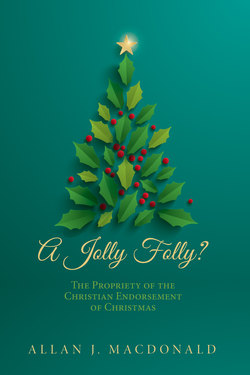Читать книгу A Jolly Folly? - Allan J. Macdonald - Страница 5
Preface
ОглавлениеThe contents of this book probably contain little that readers have not considered in the past. The book’s purpose is to stimulate further consideration and reflection on the subject—the religious endorsement of Christmas by Christian churches. The stimulus for the book itself arose out of my exposure to a whole new branch of Christ’s church, after experiencing the repeated failure of Presbyterianism to govern churches righteously and having become convinced that the covenant theology of most Reformers (first and second Reformation periods) on the ordinance of Baptism was not based on a sound and logical interpretation of Scripture.
It appeared to me that they had, in a measure, been blinkered by the dogma and tradition of Rome, the non-Apostolic church-state connection they all grew up with and the fear of being viewed as too extreme, thus leading them into a position where they imposed an artificial presupposition on the Scriptural data, namely that Roman Catholic infant baptism had to be retained at all costs. This, I believe, not only resulted in the peculiar view that God’s everlasting covenant of grace applied to both the elect and the non-elect,1 but also in an ambivalence toward holy days because of the church-state connection.
Having abandoned Presbyterian convictions and embraced the Reformed Baptist world of autonomous, independent churches, I was struck by the widespread prevalence of Christmas and Easter services. It was not what I had expected and so began a search on my part to understand why this current practice prevailed and what its modern genesis was. I am not suggesting that if the church were to discard holy days such as Christmas, it would bring a reviving work of God or solve all of the church’s problems. The master sin of pride is what is to be discarded before such blessing can be expected and too many churches are too far from this to raise present expectations. However, is the discarding of holy days such as Christmas likely to please God and bring his favor? The suggestion we arrive at, in conclusion, is that from what we know of him in his Word, such a likelihood is very real.
You may not agree with the conclusions offered herein but we trust that even if that is your position, the book will nevertheless prove to be a useful analysis of and resource on this topic.
Soli Deo Gloria
1. Turretin, Institutes, 2:195; Blake, Vindiciae Foederis, 189; The outstanding exception to the majority view amongst Reformers, which these two references typify, is the covenant theology of John Owen (described by C. H. Spurgeon as “probably the most profound divine who ever lived”).
